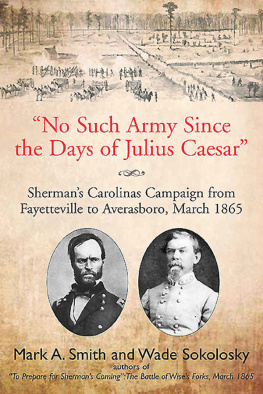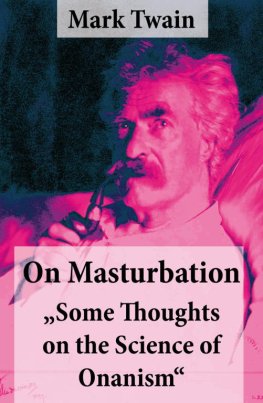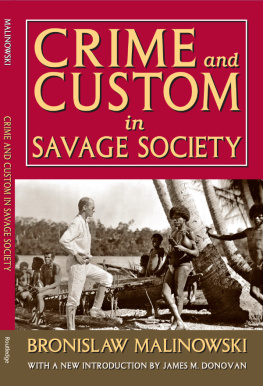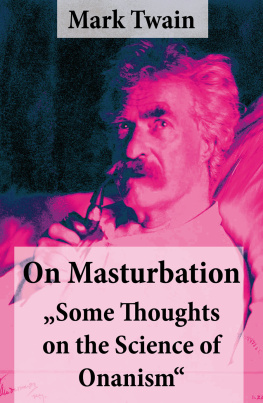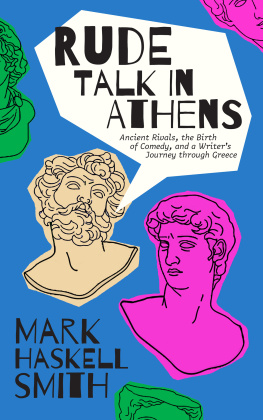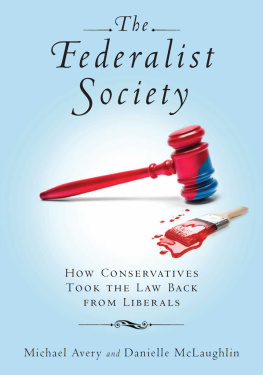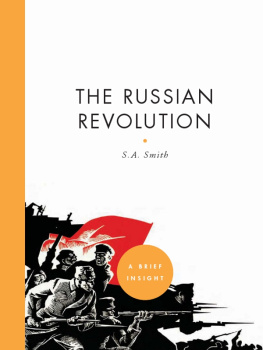Copyright 2007 by Princeton University Press
Published by Princeton University Press, 41 William Street,
Princeton, New Jersey 08540
In the United Kingdom: Princeton University Press, 3 Market Place,
Woodstock, Oxfordshire OX20 1SY
All Rights Reserved
Library of Congress Cataloging-in-Publication Data
Smith, Mark A. (Mark Alan), 1970
The right talk : how conservatives transformed the Great Society
into the economic society / Mark A. Smith.
p. cm.
Includes bibliographical references and index.
ISBN-13: 978-0-691-13017-0 (cloth : alk. paper)
ISBN-10: 0-691-13017-5 (cloth : alk. paper)
1. ConservatismUnited States. 2. United StatesPolitics and government. 3. United StatesEconomic conditions. 4. RhetoricPolitical aspectsUnited States. I. Title.
JC573.2.U6S6434 2007
320.520973dc22 2006100280
British Library Cataloging-in-Publication Data is available
This book has been composed in Palatino
Printed on acid-free paper.

press.princeton.edu
Printed in the United States of America
1 3 5 7 9 10 8 6 4 2
ONE
Introduction
In 1954 a brash and brilliant twenty-eight-year-old began planning a bold literary venture. As the future editor and initial publisher of National Review, William F. Buckley, Jr., worked tirelessly to secure financing and assemble a talented group of writers. The inaugural issue dated November 19, 1955, showcased the magazine as a forum where conservative ideas would be explained, refined, and applied to problems and politics at home and abroad. In Buckley's first Publisher's Statement describing purposes and goals, the budding intellectual icon noted that National Review stands athwart history, yelling Stop, at a time when no one is inclined to do so, or to have much patience with those who so urge it. Buckley left no doubt that he felt profound regret and even despair over America's recent past and distasteful present.
Having seen the political ground shift underneath them during the two previous decades, conservatives of the 1950s could point to a long list of grievances. To begin, the international power and prestige of the Soviet Union seemed to be rising rather than falling. The USSR had gained the enmity of a wide range of Americans, with conservatives at the front of the line, by failing to respect private property, prohibiting the exercise of civil liberties, centralizing all political authority in the state, and spreading communism to other nations. The Communist grip on Eastern Europe tightened after Soviet tanks crushed a nascent rebellion in Hungary in 1956. Pursued by both Democratic and Republican administrations, the American foreign policy featuring containment over confrontation looked morally weak and geopolitically ineffective to the intellectuals collected under National Review's masthead.
Politics in America had also witnessed a revolution on matters of domestic policy. Whereas business owners and managers once enjoyed a high degree of insulation from the federal government, now they faced many forms of intervention. Government agencies, most of them created during the Depression, regulated prices and restricted competition in industries such as banking, insurance, airlines, trucking, and radio and television broadcasting. With workers demanding a seat at the bargaining table, managerial autonomy also eroded due to internal challenges. Boosted by formal recognition from the federal government and the establishment of fair labor-management practices, union membership nearly tripled from only 12% of the workforce in 1930 to 33% by the time National Review first hit the newsstands.
The entrenchment of unions as a seemingly permanent fixture on the industrial landscape coincided with a major growth in the welfare state. Moving slowly but systematically, policymakers enacted and expanded programs to provide benefits to an ever-growing body of citizens. Social Security, which initially reached only a minority of the labor force, broadened as lawmakers regularly absorbed new categories of workers into the system and on several occasions voted to increase benefit levels. At roughly the same time that Buckley criticized the intransigence of the Liberals, who run this country, Congress added disability coverage to the retirement system. Unemployment insurance, which just a few decades earlier was a patchwork network that did not exist at all in many states, had recently attained permanence and stability, and public housingthough only a modest program in budgetary termswas following the same upward trajectory. The various components of the welfare state received financing from payroll taxes, corporation taxes, and excise taxes, but the most rapidly increasing source of revenue in the postwar years was the steeply progressive federal income tax. Although few people paid at the top marginal rate, the tax symbolized a concrete government commitment to equality that threatened cherished conservative values.
Perhaps worst of all from the perspective of conservatives, who saw the danger of not just a string of painful defeats but the prospect of unconditional surrender, the scope of the national debate had narrowed when important leaders from the Republican party sought to accommodate the New Deal rather than overturn it. The moderate Dwight Eisenhower prevailed at the 1952 Republican convention, disappointing backers of Robert Taft who hoped that the Ohio senator would be the standard-bearer for turning back the clock. Buckley's opening issue of National Review signaled a last-ditch stand and even foreshadowed a counterattack by praising the independence and free thinking of the conservatives who have not made their peace with the New Deal. After promising from the outset that the magazine would offer principled criticism of Eisenhower's policies and programs, National Review later declined to endorse the president's reelection bid in 1956.
The resounding failure of Goldwater's candidacy and the steady stream of policies abhorrent to the right forced National Review and its ideological brethren to continue their defensive posture. The most prominent political movements of the 1950s and 1960s, the struggles for civil rights and voting rights, overcame opposition from traditional bases of conservatism: southern legislators and adherents of states rights elsewhere in the nation. Despite their former opposition to the Supreme Court's 1954 decision in Brown v. Board of Education, Buckley and other conservatives eventually looked back with approval on federal involvement in overturning Jim Crow laws. On other matters, however, many of the policy legacies of the 1960s remained controversial into the twenty-first century. Federal court decisions protected the rights of the accused, required a higher wall of separation between church and state, and enforced a one-person, one-vote rule for the drawing of district boundaries. A hard-fought political battle ended in 1965 when Congress passed legislation creating Medicare and Medicaid, positioning the federal government as a major player in the financing of health care. More generally, the Great Society called for a War on Poverty that would be won through job training programs and community development initiatives.
At the same time, government activities directly affecting business proliferated, and the era of largely unregulated capitalism receded further into the past. The issue of environmental protection burst onto the national scene, sparking laws covering air pollution, water pollution, waste disposal, land use, pesticide control, wilderness set-asides, and the treatment of endangered species. Consumer protection also became a prominent issue and led to government efforts regulating pharmaceuticals, automobile safety, lending practices, and coal mines. Parallel legislation brought worker health and safety, overseen by the Occupational Safety and Health Administration, under the umbrella of federal regulation. By the early 1970s regulatory agencies were intervening in the day-to-day affairs of business to a degree never before seen in peacetime. Nearly two decades after



